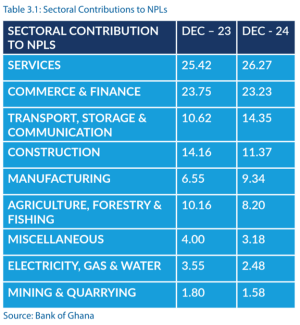
By Enoch AKUFFU-DJOBI (PhD)
In recent months, the cedi has shown signs of appreciation against major foreign currencies, particularly the US dollar.
Perhaps this is attributable to a combination of factors including the government’s fiscal consolidation measures like a sharp reduction in public spending, suspension of new projects, and a freeze on the clearance of arrears which have helped reduce pressure on the currency.
While this trend has been welcomed by many consumers and import-reliant businesses, it raises important questions about its broader implications for Ghana’s economic structure—particularly the country’s long-standing ambition to grow its export sector.
This article argues that while cedi appreciation benefits importers in the short term, it poses significant challenges for exporters and long-term trade competitiveness, especially in the context of Ghana’s development goals.
What is the problem?
The recent appreciation of the Ghanaian Cedi against major foreign currencies has generated mixed reactions across sectors of the economy. While importers benefit from reduced costs of bringing in goods, exporters face significant challenges, as a stronger Cedi makes Ghanaian products more expensive and less competitive on the international market. This divergence in impact raises important economic concerns.
On one hand, the strengthening of the Cedi helps lower inflationary pressure by making imports cheaper, potentially reducing the cost of living and improving access to foreign goods. On the other hand, it poses a threat to the growth and sustainability of export-driven businesses, which are vital for national revenue generation, employment, and foreign exchange earnings.
Despite the centrality of exchange rate stability to macroeconomic health, the nuanced effects of currency appreciation on different sectors are often underexamined.
There is a pressing need to understand how the appreciation of the Cedi is reshaping trade dynamics in Ghana—benefiting some actors while disadvantaging others—and what this means for long-term economic planning and policy.
The importer’s windfall
Importers are among the biggest beneficiaries of the Cedi’s recent gains. A stronger local currency means fewer Cedis are needed to buy foreign goods. For businesses that rely on imports—such as electronics dealers, automobile retailers, and pharmaceutical distributors—this translates to lower operating costs and, in some cases, reduced prices for consumers.
Kwasi Akuffu, who imports electronics from China, says the Cedi’s strength has helped him cut down expenses significantly. “Just a few months ago, I needed over GH?14 to get a dollar. Now it’s closer to GH?10. That difference really matters when you’re importing in bulk.” That is to say, in a country, such as Ghana where imported goods dominate markets, a strong Cedi can also help ease inflation.
The Bank of Ghana has long cited exchange rate stability as a key tool in controlling rising prices, especially since much of what Ghanaians consume—from food items to fuel—is sourced from abroad.
The exporter’s dilemma
However, not everyone is celebrating. Exporters and local producers who sell goods abroad are facing a new challenge: their products are becoming more expensive on the global market. As the Cedi strengthens, foreign buyers need more of their own currency to purchase Ghanaian goods priced in Cedis—making those goods less attractive compared to competitors from countries with weaker currencies.
Ama Rebecca, a cocoa processor who ships semi-finished products to Europe, puts it plainly: “The stronger Cedi means we earn less when we convert foreign revenue back into Ghanaian currency. It hurts our profit margins and puts pressure on our operations.” This pressure is especially concerning for small and medium-sized exporters who already struggle with high production costs, limited access to credit, and infrastructure bottlenecks. For them, currency volatility adds one more layer of uncertainty. This divergence creates a dangerous imbalance: importers flourish, while exporters struggle—reversing Ghana’s effort to move from consumption-based growth to production-based development.
Theoretical Underpinning: The Mundell-Fleming Model
This dynamic is well explained by the Mundell-Fleming model, a cornerstone of international macroeconomic theory. The model posits that in a small open economy with high capital mobility and a flexible exchange rate, currency appreciation can reduce net exports due to rising relative prices of domestically produced goods abroad.
Applied to Ghana, this means that as the cedi strengthens, foreign demand for Ghanaian exports falls—exactly the pattern being observed. This theoretical foundation has been supported by empirical studies in several emerging economies.
Lessons from Emerging Economies
Turkey (2010s): A sharp appreciation of the Turkish lira made Turkish exports more expensive, causing a dip in foreign demand. While it helped contain inflation, it damaged the competitiveness of Turkish manufacturers—many of whom relocated operations or downsized.
South Africa: The rand’s fluctuations have shown that when the currency appreciates, mining and manufacturing exports tend to underperform due to reduced competitiveness, even as importers benefit from lower costs.
Nigeria: During brief periods of naira appreciation, importers gained from cheaper imports, but local exporters, especially in agriculture and non-oil sectors, reported a drop in profitability due to reduced foreign demand.
These examples underline a critical reality: for countries trying to diversify exports and industrialize, currency strength must be managed carefully.
Striking a Balance
The contrasting experiences of importers and exporters highlight a deeper issue: currency appreciation isn’t universally good or bad. It depends on where you stand in the economy.
A strong Cedi can help stabilize prices and reduce the cost of foreign goods, but it can also harm sectors that are critical for generating jobs, foreign exchange, and long-term economic growth. Exporters bring in hard currency, support value addition, and help reduce Ghana’s trade deficit—functions that are vital to national development.
Moreover, if exporters struggle and reduce output or lay off workers, the broader economy could suffer despite the short-term benefits of a strong currency.
What Should Be Done?
Policymakers now face a delicate balancing act. On one hand, they must maintain a stable currency to control inflation and support consumer welfare. On the other, they need to ensure that exporters and local producers remain competitive.
Experts suggest that part of the solution lies in diversifying the economy and reducing over-reliance on raw commodity exports. Others call for incentives and support schemes to help exporters upgrade production, access new markets, and hedge against currency fluctuations.
Ultimately, the Cedi’s appreciation is a reminder that economic strength isn’t just about numbers—it’s about balance. As Ghana navigates this economic moment, the challenge will be to ensure that the benefits of a stronger currency do not come at the cost of long-term growth and industrial competitiveness.
Conclusion
Cedi appreciation is indeed a blessing for importers—but for exporters, it represents a hurdle that could weaken Ghana’s long-term development prospects.
If Ghana’s economic vision includes becoming a hub for industrial production and value-added exports, then it must recognize and mitigate the trade-offs of a strong currency. The time has come for a nuanced exchange rate policy that supports both trade pillars—import efficiency and export competitiveness.
Enoch is a Chartered Accountant / Certified Banker with a deep passion for accounting, banking, and governance. His expertise spans both education and practice reflecting a commitment to research and knowledge sharing. He can be reached via [email protected]). Contact: 233244201383.
The post Cedi appreciation: A blessing for importers, a hurdle for exporters? appeared first on The Business & Financial Times.
Read Full Story


















Facebook
Twitter
Pinterest
Instagram
Google+
YouTube
LinkedIn
RSS